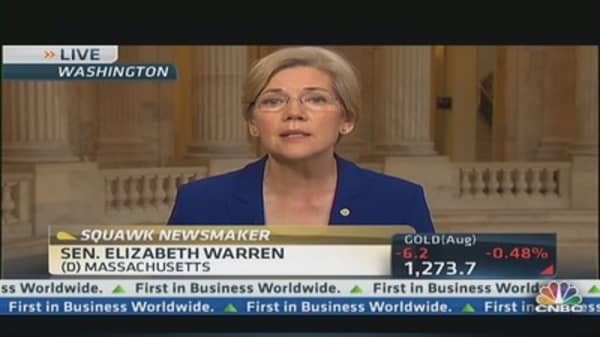To put it differently, history is unlikely to repeat itself in exactly the same way (putting aside the possibility of what Nietzsche calls the "eternal return of the same"). The next crisis is unlikely to unfold exactly like the last one did. This isn't Battlestar Galactica where "all this has happened before, and all this shall happen again."
In any case, nothing we pass today is going to travel back in time and prevent 2008 from occurring. New legislation should be aimed at remedying current problems and avoiding future crises—or at least ameliorating their impact on the economy.
So what is Senator Warren trying to accomplish with her bill?
"I've been making a simple point to anyone who will listen: we need to learn from the financial crisis of 2008 and, moving forward, to prevent the kinds of high-risk activities that made a few people rich but nearly destroyed our economy," Warren said on her blog.
Ack. That's less than helpful because it really does seem like Warren is trying to prevent the past. You can't "prevent" something that already made a few people rich and nearly destroyed our economy.
So it looks like both sides in this debate are looking at the law the wrong way.





